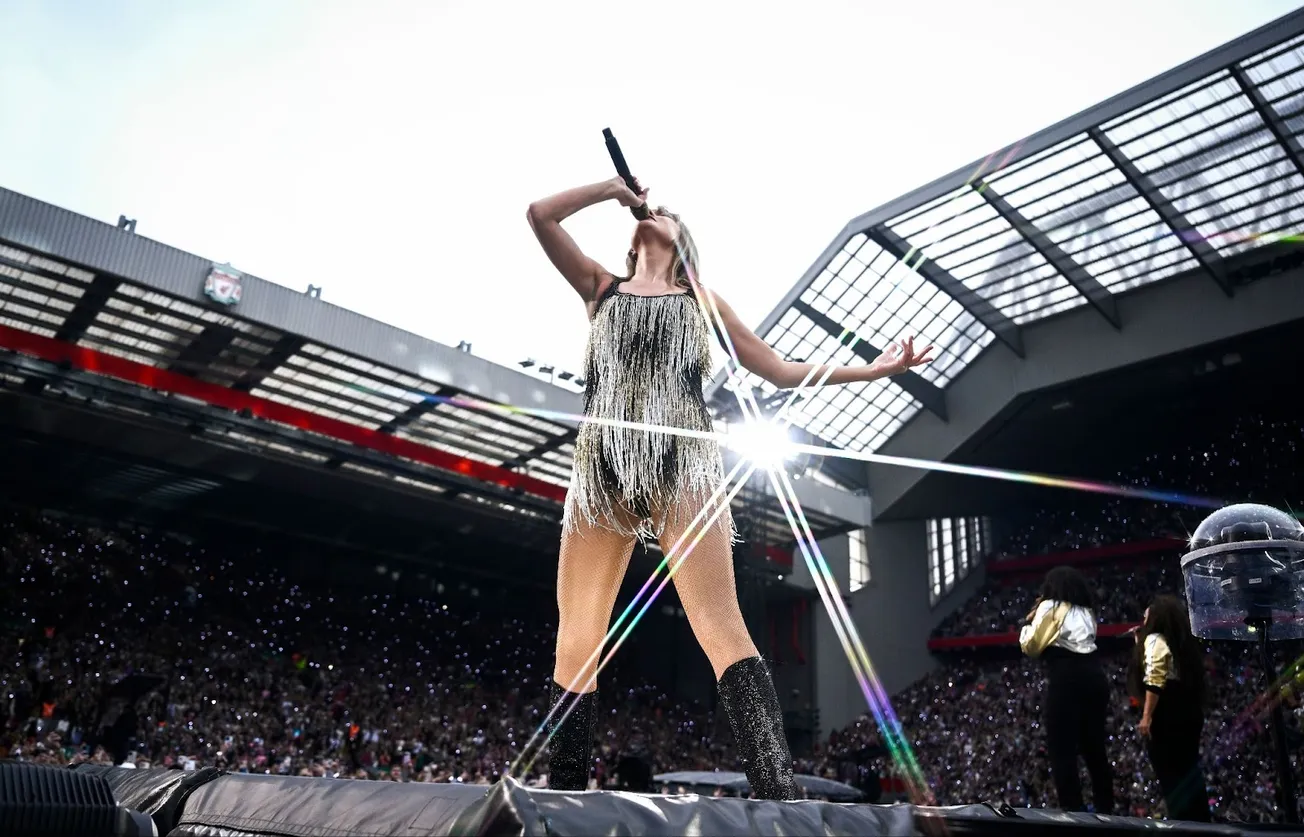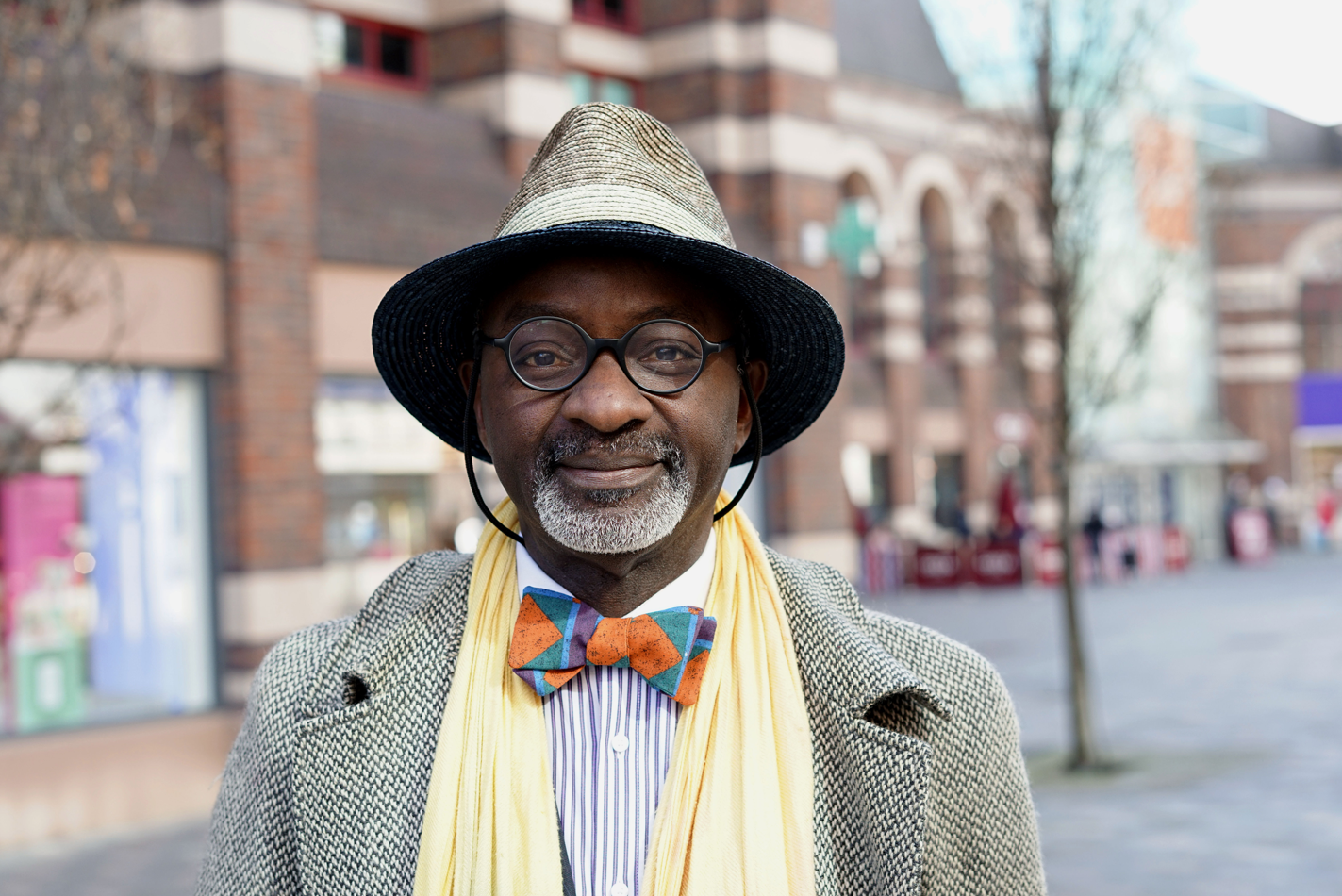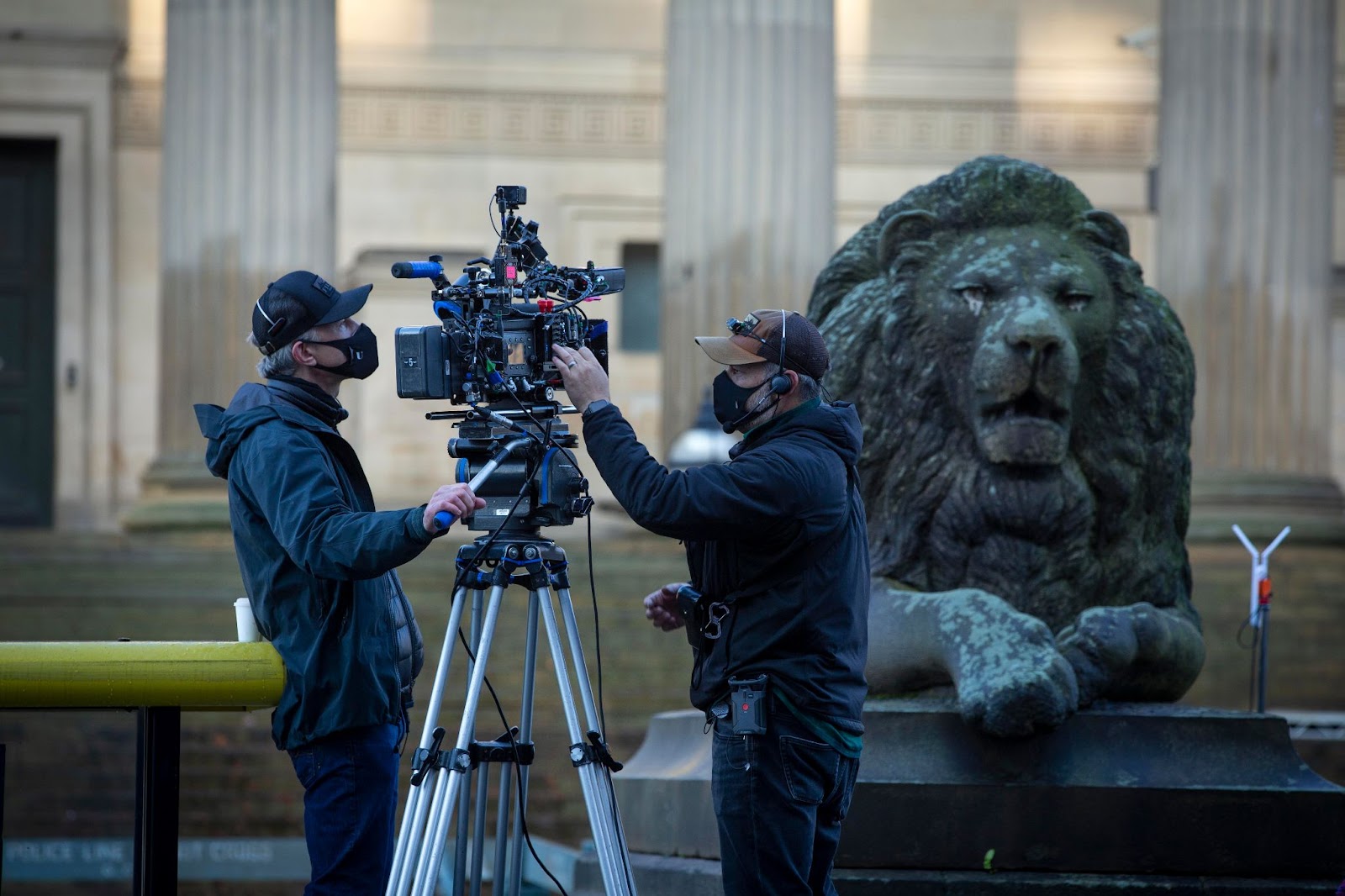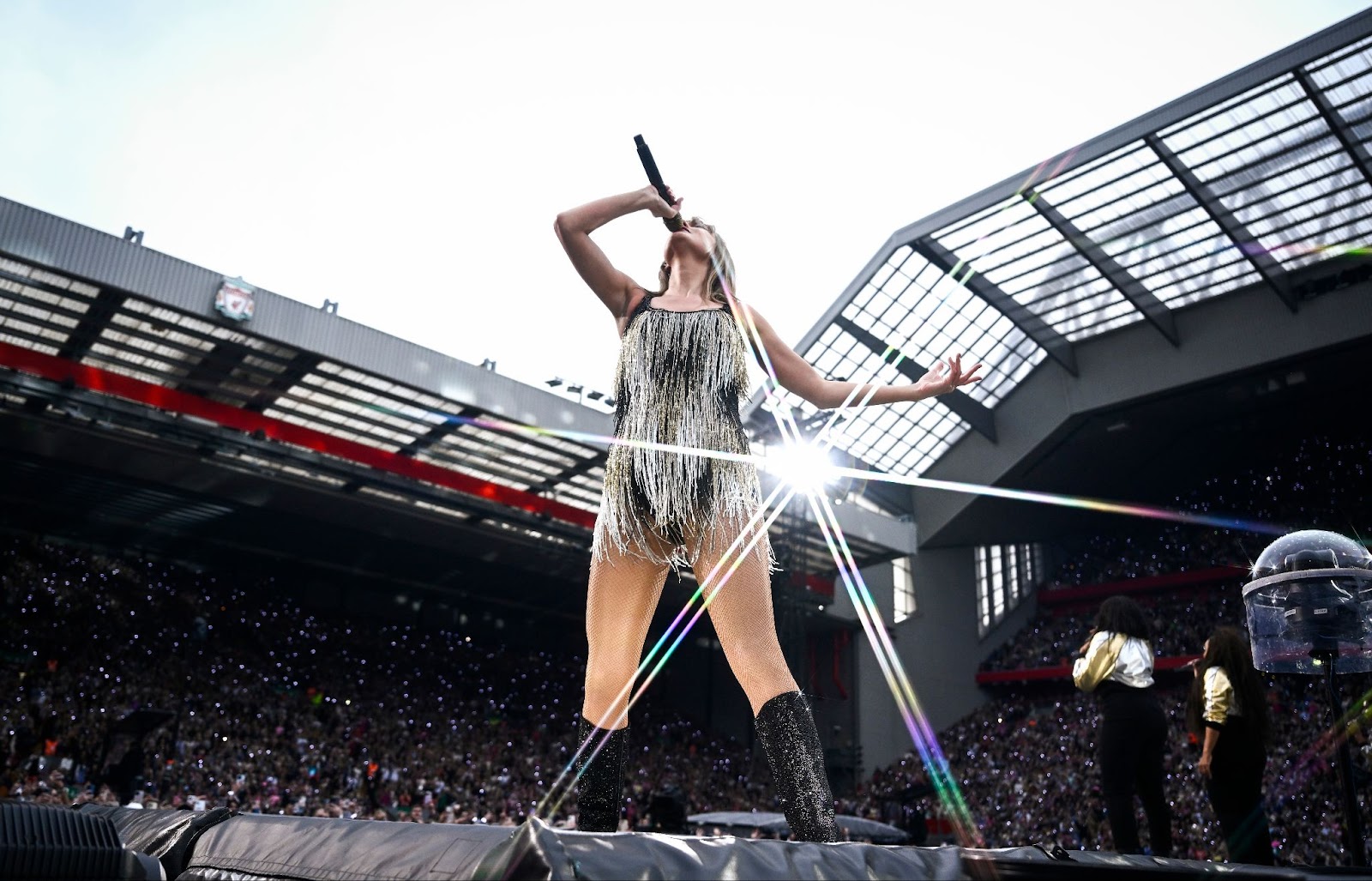Can a cash infusion from the government revitalise Liverpool’s music scene?

Plus: Making nightlife greener and this month’s holiday festivities
Dear readers — a festive welcome to your Monday briefing as we begin the countdown to Christmas. The self restraint required to not eat all the chocolate in our advent calendars in one sitting has already been pushed to its limit…
ICYMI: Over the weekend, Shannon caught up with photographer Dave Knight, who has been capturing the glamorous souls of Bold Street for many years now. “Doing what he does takes courage, just a different type of courage from the people he photographs,” one of you commented. “Time for an exhibition at the Walker, or Bluecoat don't you think?” We wholeheartedly agree.

On with today’s edition, which includes a pop-up Christmas shop opening this week in Knowsley and our big story: looking into the city’s efforts to both revitalise its live music scene while also prioritising the climate.
Editor’s note: It’s downright Dickensian down at The Post workhouse — er, headquarters. Laurence has had to make a small bonfire of legal threats just to keep his hands warm, while Abi is doing her best impersonation of the Artful Dodger (of work). Rather than blowing your Christmas budget on Cyber Monday sales, please spare a thought for our hungry-for-stories authors and consider supporting our journalism with a paid subscription today.
The big story: The UK government’s Department of Culture, Media and Sport gives Liverpool’s music scene a much-needed boost
Top line: With a nearly £7m pledge for the city’s live music scene and coordinated efforts to bring down carbon footprints, Liverpool’s culture sector looks bright as well as green. But how much of this fanfare is just savvy PR?
Context: Two weeks ago, Liverpool City Council leader Liam Robinson headed to the UN’s COP29 summit to talk about the city’s innovations in trying to reduce the carbon footprint of concerts. Meanwhile, Future Yard in Birkenhead hosted POP29, a day-long symposium of “debate, performance, celebration, and dialogue” on how DIY venues can respond to the climate crisis.
Future Yard has already made inroads to reducing its carbon emissions, using renewable energy, leaving meat out of its food menus, and introducing a "plug and play" scheme to supply drums, amps, microphones and other equipment so touring bands only have to bring their guitars and drumsticks. In 2023, Future Yard also campaigned successfully to bring back the long-lamented night buses connecting Birkenhead and Liverpool, and venue organiser James Gillaspy told the BBC that Future Yard had seen a 25% increase in how many local artists used public transport for their gigs.
These initiatives are not limited to music. The council have also recently announced the introduction of “plug-in zones” — mains power pillars that will reduce the necessity for high-polluting, temporary generators on film and television shoots in the city. As the most-filmed location in the UK outside of London, Liverpool’s ambition to decarbonise film sets is a welcome one.

That’s not all. The Department of Culture, Media and Sport (DCMS) has announced a £6.75m injection to help Merseyside’s live music scene. Under the scheme, major establishments like the University of Liverpool, LJMU, the Philharmonic and the M&S Bank Arena will be brought within the MusicFutures cluster, previously announced by metro mayor Steve Rotheram in his plans for the region’s music tourism, recording and education areas.
“From the Beatles to the vibrant live music scene that continues to thrive today, I’m proud that this new funding will continue to build on that legacy, ensuring we remain at the cutting edge of music innovation for years to come,” Rotheram said.
That some of these funds will be allocated towards musicians and educators is good news. But the detail that the money will be used to help them and small businesses access Artificial Intelligence (AI) and Extended Reality (XR) seems like a non-sequitur, much like some of Rotheram’s other dalliances with AI, such as his partnership with the controversial Century Tech company.
The Post has argued in the past that the closure of DIY music venues to make way for “luxury apartments” is part of a larger cultural decline in Liverpool. Any cash injections or UN initiatives to reverse this trend are certainly welcome. But when reporting those stories, at no point did any artist, performer, host, or promoter tell us that “immersive” or “emergent” technologies lauded by the Arts and Humanities Research Council or the MusicFutures press releases would be key to reviving the city’s artistic scenes. “Tech savvy firms” — Lisa Nandy’s phrase at the DCMS announcement —didn’t come into play, either.
Bottom line: The metro mayor is correct when he says that Liverpool has a long and proud history as one of the world’s most iconic places for music. But in recent times, it has distinguished itself internationally not with home-grown talent like The Beatles, but by embracing Eurovision and Taylor Swift through kitschy initiatives like “Taylor Town.” Meanwhile, the “vibrant” live music scene Rotheram lauds has been affected by venue closures or enforced studio relocations. This has made Liverpool feel less like a unique “City of Music” and more like — well, anywhere else, really.

Much of the political discourse around the culture industry is more about industry than culture. Whenever words like “innovation”, “growth”, or “creatives” are emphasised over “art” and “artists”, it’s tempting to be sceptical.
Next year, the city is expected to host huge international acts like Bruce Springsteen and Lana Del Ray. If the council can partner with big venues to put on such shows without significantly contributing to Liverpool’s carbon footprint, or ensure films and television shows such as Peaky Blinders and The Batman can continue to be made here without recourse to diesel generators, this is all to be celebrated. But don’t expect a “trickle-down” effect into the region’s smaller and DIY venues or grassroots ventures.
This Christmas, give the gift of local journalism
It’s December. There’s no getting around it. You need to start sorting out those Christmas presents pronto.
But don’t fear — we have the perfect gift for the Liverpool lover in your life. With a subscription to The Liverpool Post, they’ll spend the next year being reminded four times a week just how much you value them. Plus they’ll feel much more connected to where they live — a great new year’s resolution for us all.
You can buy someone else a subscription, and set it to kick in at Christmas, by pressing the button below.
Your Post briefing
🌲A hospice in Sefton is set to receive a sapling from a famous Sycamore Gap tree that was cut down in Northumberland in 2023. St Joseph's Hospice applied to be given one of the saplings grown from seeds from the iconic tree by the National Trust, and is due to be planted next winter. For those who don’t remember the news in 2023: the Sycamore Gap tree stood in a dip along Hadrian's Wall in Northumberland until it was deliberately felled by vandals. At the time, nature photographer Ian Sproat said his "heart was ripped out" over the damage. Hospice CEO Mike Parr said it was "a real honour and privilege" to get a sapling from that same tree as a "symbol of hope and life for our community".
🎅A pop-up Christmas shop run by students is set to open in Knowsley this week. Pupils at Bluebell Park School in Kirkby are taking over a shop unit in the town centre to sell Christmas gift sets, candles and phone charms, with all profits helping to fund further opportunities at the school. “The students have been really busy with researching and developing the products they would like to sell and I really look forward to people coming along to support them,” headteacher Michelle Slater told the BBC.
🪙A record number of treasure finds have been recorded in Merseyside by a detectorists charity. Data from the Department for Culture, Media and Sport reveals a total of 1,358 treasure finds were reported in England and Wales in 2023, with 21 of those found in Merseyside — the highest in 11 years. Keith Westcott, the founder of the Detectorists Institute and Foundation, said the significant number of treasure finds reported in the last 12 months shows the importance of ensuring artefacts are found and their heritage preserved.
🗞️And sad news as John Tinniswood, the world's oldest man, has died at 112 years old. Tinniswood, from Southport in Merseyside, was a Liverpool football fan and became the world’s oldest living man in April this year, when Juan Vicente Pérez Mora died at the age of 114. He was born on 26 August 1912, the same year the Titanic sank. Earlier this year he revealed that his secret to a long life was a portion of fish and chips every Friday — watch that clip of him here.
Home of the week

This three bedroom terraced house in Wavertree is a real steal. It’s just a minute’s walk away from Smithdown Road, with Post favourites like Picnic and Belzan on your doorstep. It’s on the market for £240,000 – take a tour here.
Post Picks
🎅The St Helens Santa Dash kicks off at 11am this Saturday at Victoria Park. Entry is £5 for adults and £2 for children, with all the money raised going towards the St Helens Young Carers Centre.
🎺Enjoy a night of big band jazz over in New Brighton on Wednesday. Hosted at the New Brighton Hotel Bar and Lounge, the Swing Era will take to the stage from 7.30pm — with a hot supper option included.
🎄Learn how to make a festive wreath using natural materials at Make On The Corner in Huyton on Saturday. The workshop runs from 10.30am to 1.30pm, with materials provided. Find out more here.
📽️On Friday, DoES is showing the 1992 film Food, by surrealist filmmaker Jan Svankmajer, as part of its Fringe Flicks series. Doors open at 7.30pm — find out more here.
Recommended reads
Enjoy this lovely mini-documentary by the Museum of Liverpool as they take a trip back in time to look at the history of Taveners, Liverpool's much-loved sweet factory that opened in 1885.
For those following the Lucy Letby Thirlwall Inquiry, this piece by the BBC acts as a great summary of what we know so far.


Comments
Latest
From Hoylake to St Helens, community cinema is making a comeback
Millions of tonnes of greenhouse gas to be piped under Liverpool Bay
The unexpected auction: A London fund manager is selling Merseyside homes from under their tenants
Northern Powerhouse Rail is back on track. We think...
Can a cash infusion from the government revitalise Liverpool’s music scene?
Plus: Making nightlife greener and this month’s holiday festivities